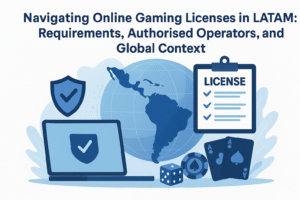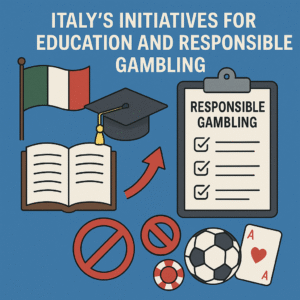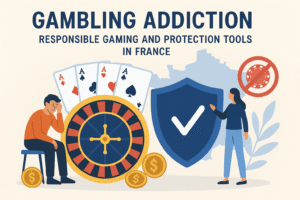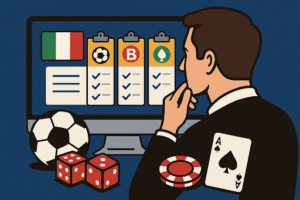Italy’s Initiatives for Education and Responsible Gambling
Today, education, responsible gambling and digital safeguards are not secondary considerations — they have become pillars of the national strategy endorsed by regulators, operators, and public-health organisations.

Introduction
In recent years, Italy has significantly strengthened its commitment to promoting safe, transparent and education-driven gambling practices. Although the country already operates one of the most regulated betting markets in Europe, the rapid growth of online platforms and the shift toward play via mobile devices have pushed institutions and operators to invest more deeply in prevention and public awareness.
Historical and Regulatory Context
Evolution of Italian Legislation
Italy’s approach to responsible gambling has matured over more than two decades, shaped by incremental reforms and a growing emphasis on player protection.
The Balduzzi Decree (2012)
This decree introduced stricter controls on advertising, new protections for minors, and obligations for operators to monitor risky behaviour.
Reference: The role of ADM in regulating gambling is detailed on the official portal of the Agenzia delle Dogane e dei Monopoli (ADM), Italy’s gaming regulator.
Stability Law (2016)
Strengthened certification processes for online gaming platforms licensed by ADM. ADM also outlines its FAQ on regulated gambling systems.
“Decreto Dignità” (2018)
A landmark reform that imposed one of Europe’s strictest gambling-advertising bans. Analyses comparing European laws highlight Italy’s early adoption of hard restrictions.
2023–2024 Reform of the Public Gaming Sector
Recent years have seen Italy commit to a wide-ranging modernization that includes:
- stronger safeguards for vulnerable individuals
- mandatory digital monitoring tools
- expansion of self-exclusion systems
- increasing transparency and operator accountability
International sources note that Italy’s latest licensing framework requires significant financial and compliance investment by operators.
Italy’s Major Responsible Gambling Initiatives
School and Youth Education
The expansion of online betting and the shift toward play via mobile devices, made possible through increasingly sophisticated betting apps, has pushed institutions and operators to introduce more robust prevention measures and educational campaigns. Regional governments, schools, and certified psychologists conduct workshops addressing:
- psychological risks associated with gambling
- differences between gaming and gambling
- emerging grey areas such as loot boxes
- financial literacy for young adults
This youth-oriented approach is one element that distinguishes Italy from other European jurisdictions.
ADM’s “Play Responsibly” Campaign
ADM actively promotes responsible-gambling guidelines across retail shops and digital platforms. These include informational materials, helplines, and tools helping players reflect on their habits.
A scientific perspective on public-health approaches to gambling is provided in The Lancet Public Health Gambling Commission (Lancet).
The National Self-Exclusion Register (RUA)

One of Italy’s most impactful innovations, the RUA, allows any individual to exclude themselves from all legal online and land-based gambling activities.
Inspired partly by systems such as GAMSTOP in the UK, it mirrors international regulatory trends toward cross-operator exclusion.
Mandatory Training for Operators
Licensed operators must train staff to:
- detect harmful behaviours
- assist vulnerable customers
- enforce age-verification systems
- avoid psychological pressure or disguised promotion
This contributes to a more responsible and transparent ecosystem.
Digital Tools and the Growing Role of Technology
The Platform Safeguards Required by ADM
Italian-licensed online operators must now implement:
- deposit limits
- time-out functionality
- behavioural monitoring
- session reminders
- cooling-off periods
These tools are especially relevant when players use intuitive gaming interfaces or self deposit limit imposed by poker apps, which help encourage structured spending habits and prevent uncontrolled deposits.
Studies on supply-side interventions show how these controls can reduce harm.
Risks Involving Modern Payment Methods
With more gamblers turning to digital wallets, Italy’s regulators have highlighted the risks related to connecting payment methods such as Apple Pay to iGaming platforms. Instant payments offer convenience but may accelerate impulsive behaviour if not combined with spending limits and identity verification.
Enforcement and Market Integrity
A Strong Crackdown on Illegal Gambling
ADM and the Ministry of Economy have intensified efforts against unlicensed operators, blocking hundreds of illicit websites annually. Recent enforcement updates reported:
- 28,000+ inspections in a single year
- 700+ illegal operators shut down
European regulators also agreed to enhance data-sharing on unauthorized operators.In addition, Italy has fined social media platforms that violate gambling-advertising rules.
A comparative international breakdown of marketing restrictions is also available in this GambleAware research document.
Tables and Data
Table 1 — Key Milestones in Italy’s Responsible Gambling Strategy
| Year | Reform | Core Objective |
|---|---|---|
| 2012 | Balduzzi Decree | Youth protection, advertising limits |
| 2016 | Stability Law | Stronger certification for online platforms |
| 2018 | Decreto Dignità | Ban on gambling advertising |
| 2020+ | National Self-Exclusion (RUA) | Prevention and centralised exclusion |
| 2023–24 | Sector Reform | Transparency, digital monitoring, safer licensing |
Comment: A gradual progression shows how Italy transitioned from basic regulation to a more sophisticated, player-protection approach.
Table 2 — Most Used Player-Protection Tools in Italy (Est. 2023–2024)
| Protection Tool | Estimated Usage |
|---|---|
| Deposit-limit systems | 42% |
| Self-exclusion (RUA) | 9% |
| Time-limit controls | 25% |
| Behavioural notifications | 31% |
| Short timeouts (24–72 hrs) | 18% |
Comment: Deposit-limit systems are the most frequently used tool, confirming their relevance in modern regulated gambling.
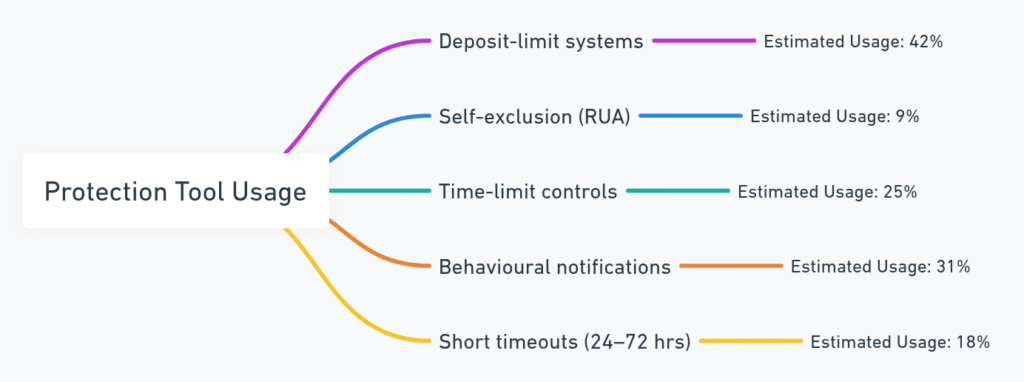
International Comparison
United Kingdom
The UK operates a mature market with extensive responsible-gaming rules, although some critics argue that advertising standards developed more slowly than in Italy.
Spain
Spain’s regulatory body, the DGOJ, has introduced rules similar to Italy’s, especially in advertising restrictions and youth protection.
France
France’s ANJ imposes a stricter regime on online gambling, although Italy leads in school-based educational outreach.
Impact on Players and Operators
Effects on Players
Players benefit from:
- improved financial controls
- better access to educational resources
- clearer warnings and reminders
- a safer mobile betting environment
These measures are increasingly important as mobile-centric habits influence how and where players engage with digital entertainment.
Effects on Operators
Operators face higher compliance costs and stricter transparency obligations, yet benefit from greater credibility and long-term consumer trust.
Major Italian brands such as SISAL have been central in aligning their platforms with ADM’s regulatory expectations, demonstrating how established players can help shape a safer industry.
Conclusion and Forward-Looking Perspective
Italy has built one of Europe’s most advanced protective ecosystems for gambling, combining strong regulation, robust enforcement, education, and technology-driven safeguards. As mobile behaviour evolves and digital wallets become more common, Italy’s experience demonstrates the importance of pairing innovation with responsibility.
Looking ahead, several developments are likely to shape the future:
- wider use of AI for detecting risky behaviour in real time
- broader integration of consumer education in schools, workplaces and digital platforms
- increased European cooperation to counter illegal cross-border operators
- transparent operator reporting on player-protection metrics
If Italy continues nurturing this balance between safety and innovation, the country could remain a benchmark for responsible gambling policy worldwide.


